Activation of mobile push campaign
To proceed with activating your campaign, please create a campaign and complete its content form.
Learn more: about the content form of a mobile push campaign
Setting frequencies
Specify the desired frequency of push notification delivery in days or hours. The default limit is the same as the global limit. Make desired changes and save them to apply them. It is not possible to save campaigns with stricter global frequency caps.
If you use less strict limits in the local frequency cap than in the global, the campaign will be displayed in the list with a warning icon next to its name. The icon serves as a notification to the user, indicating that the campaign will continue to run based on the less strict limits specified in its local frequency cap.
Ignore global frequency cap
To bypass the frequency limit for a specific campaign, select the "Ignore global frequency cap" checkbox. The campaign will be displayed in the list with a lightning icon next to its name.
Remember: it is also possible to set global frequency across all mobile push campaigns. Read more here.
Segment selection
In order to send Mobile Push notifications, you can use a dropdown list to select one or multiple segments of customer profiles. Please note that segments should be created in advance in the Segments tab.
If you wish to create additional sets of segments, simply click on the "Add sending batch" button. This allows you to send or schedule mobile push campaigns to different batches independently from one another. Using separate sending batches, you can effectively manage and target your push notifications across various segments.
Remember: when sending a push notification to a segment batch, duplicate customer profiles are automatically removed. This means that each profile's device will receive the push notification only once. However, if a customer profile appears in different segment batches, it is possible for that profile to receive the campaign multiple times. To avoid excessive notifications, it is recommended to use frequency capping.
When multiple segments are used in a single batch, the number of profiles that will receive the Mobile Push campaign is determined by the "or" operator between the conditions specified in all segments.
Learn more: for a better understanding of a segmented profile number, especially when combining lookalike and regular segments in one sending batch, reach out to this article.
Activate campaign
1. Define schedule to campaign
Scheduling your push notification campaign allows you to reach your audience at the best times, increasing engagement rates and providing more control when your message is sent.
Use a dropdown button to select your preferred schedule type.
You can choose only one scheduling type, as they cannot be combined:
| One-time schedule |
allows for executing the campaign once at this specific DateTime only. The upcoming schedules are highlighted in orange, while the already activated ones are displayed in grey: |
| Recurring schedule |
Recurring schedules allow you to automate exports at regular times. You can configure: For both, you can then specify:
Each segment batch has its own independent recurrence. At each interval, only profiles matching the segment conditions at that time will be included.
Time is scheduled and executed in UTC. |
2. Activate campaign immediately
Use the "Send now" button to immediately send the push notification to the audience.
Activation history
Activation history lists Mobile Push executions from the last 30 days.
Columns
- Segment name
The segment(s) targeted for this activation. Multiple badges appear if more than one segment was used. - Batch size
Number of push messages, not profiles. The count of valid registration tokens that passed basic checks and are ready. - Excluded (frequency cap)
Number of registration tokens paused by your push frequency cap for the selected period. Shown in red. - Scheduled to send
Final push messages queued to go out now — Batch size minus Excluded. Shown in green when > 0. - Activated
When the activation was triggered (with the triggering user displayed below the timestamp). - Status
One of waiting, running, finished, or error. Counts appear once the activation reaches finished or error.
Warning: if an attribute is defined in Mobile Push and later is hidden, attempting to activate the associated campaign results in error.
Statistics
The statistics on the number of entities that received a Mobile Push notification are saved in the Grafana logs, accessible through the User menu. However, only users with the appropriate permissions can view this information.



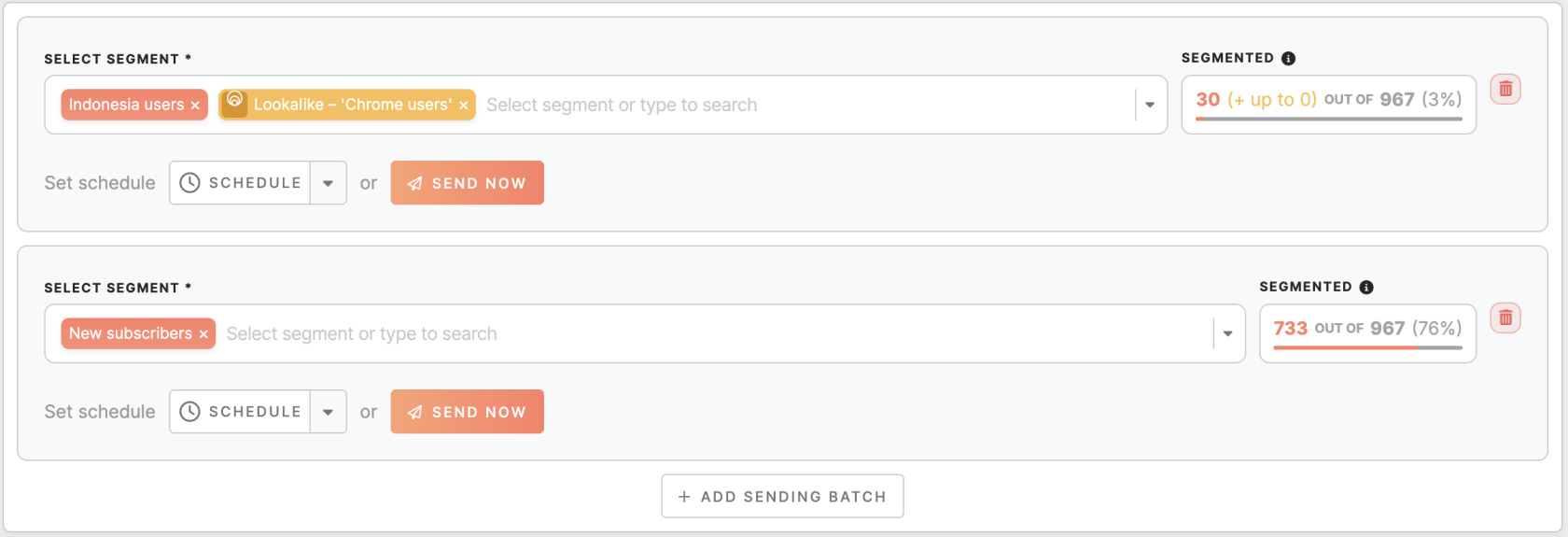

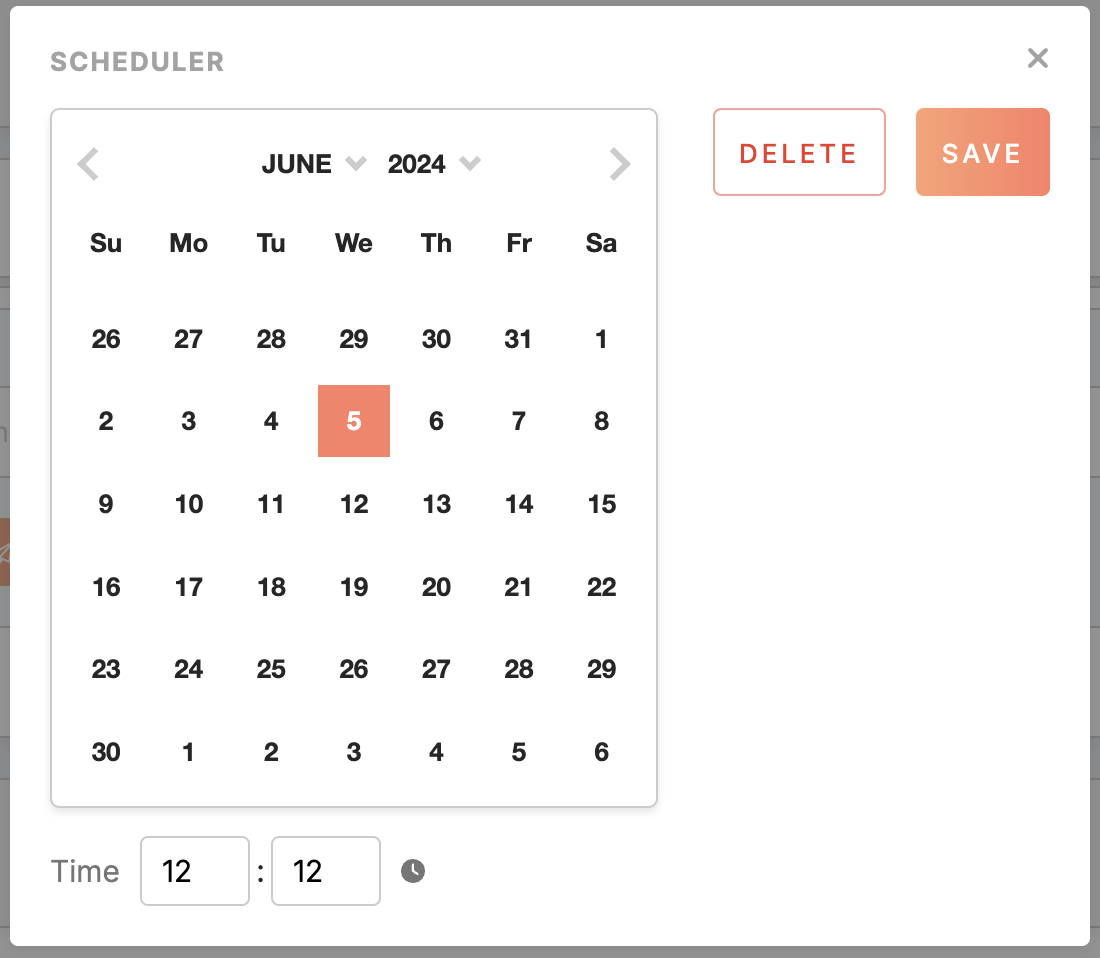


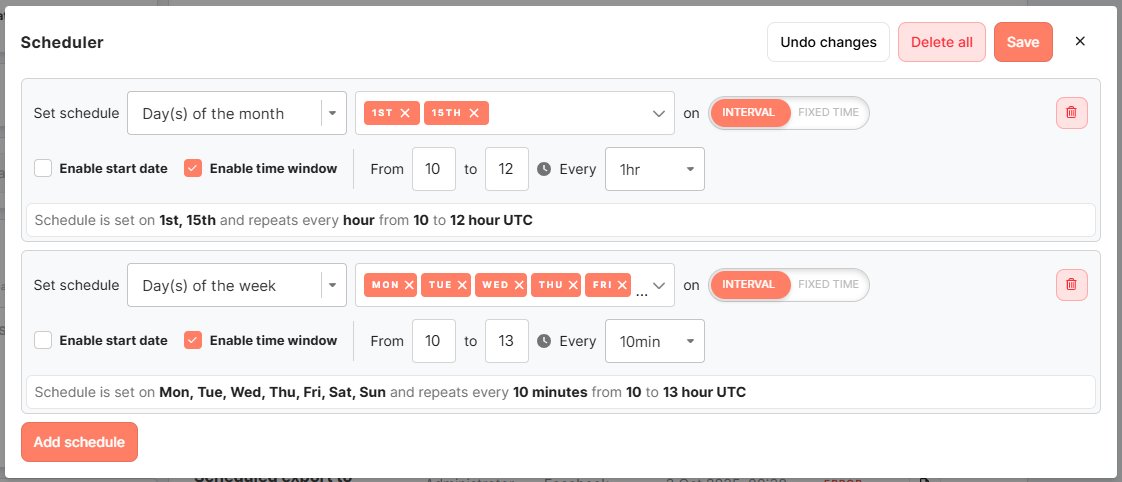
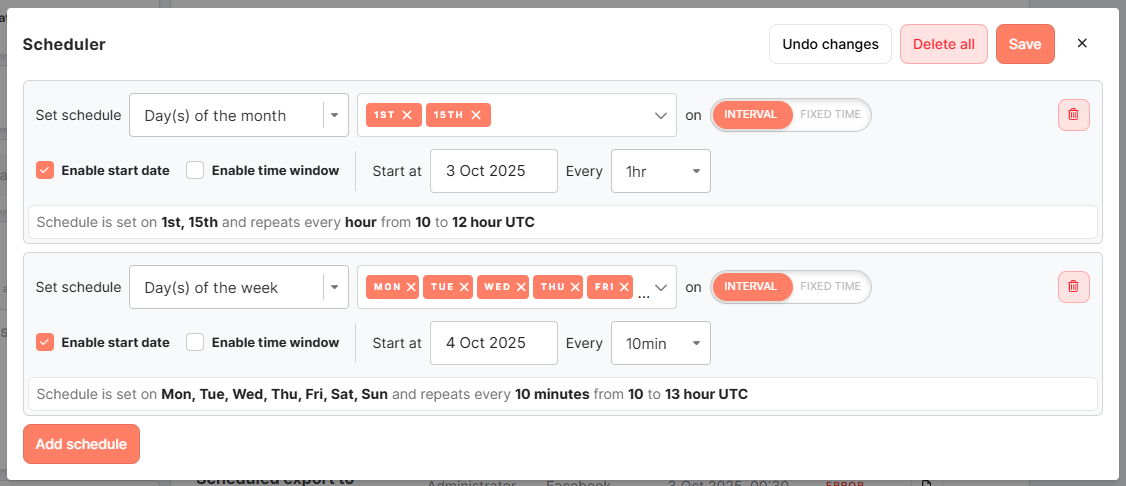

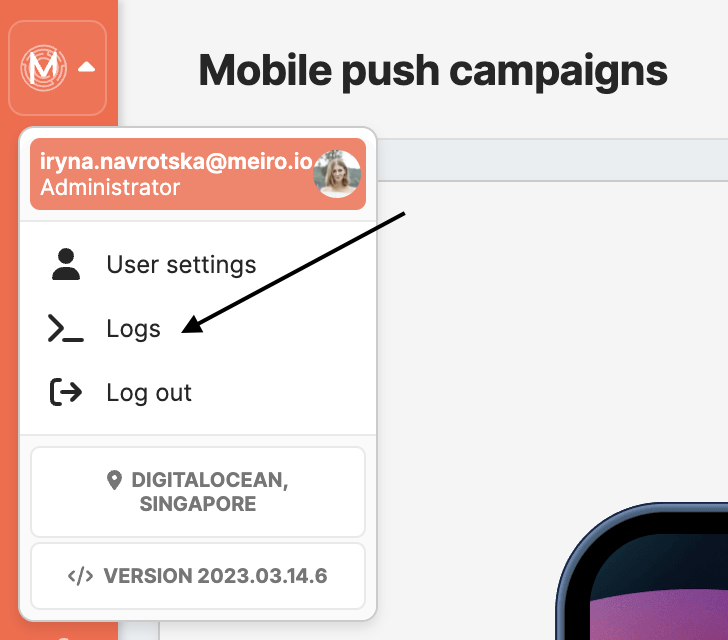
No Comments